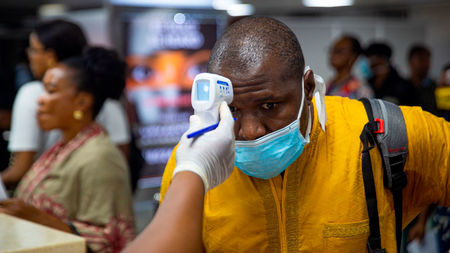Addis-Ababa (Ethiopia), Nov.19, 2023: Some researchers at the African Economic Conference (AEC) say human capital is crucial in ensuring Africa’s industrialisation drive is achieved.
The researchers spoke at the 2023 AEC with the theme: “Imperative for Sustainable Development in Africa” on Saturday at a dedicated research session on “Human Capital Development for Industrialisation in Africa.”
A researcher, Segun Awode, while presenting a study on “Enhancing Industrial Productivity and Competitiveness in Africa: A Focus on Technological Innovation and Human Capital Development,” underscored the need for a holistic approach.
Awode said the study revealed a relationship between technological innovation, human capital development, industrial productivity, and competitiveness across the continent.
He said while technological innovation negatively impacted industrial productivity, human capital development was a robust positive influence.
He said the study stressed the symbiotic relationship between technological innovation and human capital development, generating a synergistic positive impact on industrial productivity.
Awode said formulating and implementing policies supporting technological innovation and human capital development wrre imperative for sustainable industrial development in Africa.
He highlighted the need for concerted efforts to facilitate technology transfer partnerships with developed countries and multinational corporations to introduce cutting-edge technologies to local industries.
“We need a strategy that harmonises technological innovation and human capital development for driving the industrial process in Africa.
“It is therefore important for us to invest in human capital development and establish mechanisms for retaining talent.
“There needs to be a revamp of educational curricula to align with industry needs; investments in technical skills and vocational training programmes will bridge the shortage of skilled workers and retain talent within the continent.
Discussing the paper, Mr Moctar Seydou, the National Economist at UNDP, suggested an Africa-centric focus to enhance the paper’s relevance to the continent.
Seydou said that in spite of this critique, the paper provided valuable insights into the intricate dynamics of technological innovation, human capital, and industrial development in Africa.
In another presentation, Micheal Asamoah explored the relationship between foreign direct investment (FDI) and African real sector growth, mediated by human capital.
Asamoah said the study identified significant thresholds in the FDI-real sector growth relationship, emphasising the importance of sector-specific policies for human capital development.
Mr Akim Almouksit presented a paper on structural change and Morocco’s National Initiative for Human Development.
According to Almouksit, the study provides subnational insights, revealing that human development programmes positively affect productivity growth, particularly through structural change.
Meanwhile, Mr Lorenzo Mancini, the Senior Economist at UNDP, commended the authors for their comprehensive approach, acknowledging the significance of subnational insights and challenging them to do deeper research.
The African Development Bank (AfDB), the Economic Commission for Africa, and UNDP jointly hosted the AEC.
The ongoing meeting brings together leaders, youth, African scholars, academics, private sector operators, and development practitioners to deliberate on research and propose policy recommendations on the continent.




